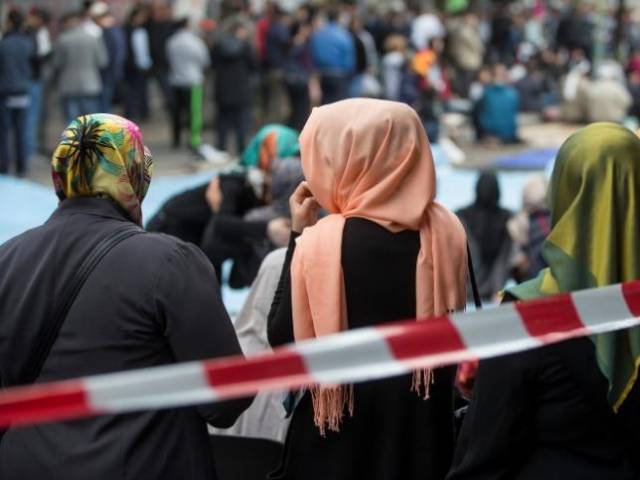
Iran's government has announced plans to open a new facility aimed at "treating" women who defy the country's hijab laws, a move that has been met with condemnation from human rights groups and activists.
The proposed "hijab removal treatment clinic" will reportedly offer psychological and scientific counseling to women who choose to remove their hijabs or fail to comply with the mandatory dress code.
The announcement was made by Mehri Talebi Darestani, the head of the Women and Family Department at Tehran’s Headquarters for the Promotion of Virtue and Prevention of Vice, a body responsible for enforcing public morality laws, including the compulsory hijab.
According to Talebi, the clinic will focus on offering treatment for women struggling with their "social and Islamic identity" and will target young women, particularly teenagers, who are perceived to have violated the hijab law.
The government frames the clinic as a voluntary space for women to reconnect with Islamic dress codes and societal norms.
However, critics argue that it may be coercive, with the potential to imprison women in a state-run institution under the guise of psychological treatment.
Iranian human rights lawyer Hossein Raeesi dismissed the clinic's establishment as "neither Islamic nor aligned with Iranian law."
He expressed concern that the clinic could be used to impose forced interventions on women who challenge the country's laws.
Sima Sabet, a UK-based Iranian journalist, called the move "shameful," labeling the establishment of such clinics as "chilling" and a dangerous extension of state control over women's freedoms.
"This is a way of treating women as mentally unstable simply for not conforming to the government's ideology," Sabet said.
The announcement comes amid escalating tensions in Iran, where women have been at the forefront of protests against the country's dress codes.
Following the death of 22-year-old Mahsa Amini in September 2022, who died while in the custody of the morality police for allegedly violating the hijab law, protests erupted across the country.
The "Woman, Life, Freedom" movement gained international attention, with women leading the charge to demand the right to choose how they dress and challenging the government's authoritarian policies.
In addition to the clinic, the announcement follows reports of arrests and forced disappearances linked to breaches of the hijab laws.
Last week, the Center for Human Rights in Iran highlighted the case of 25-year-old Roshanak Molaei Alishah, who was arrested after confronting a man who harassed her on the street over her hijab.
Human rights organisations have expressed growing alarm over the government's tactics, which include detaining women for perceived violations of the dress code and reportedly subjecting them to violence, forced medication, and psychiatric evaluations.
In a particularly disturbing case, a university student was arrested after removing her clothing in protest of harassment by security officers for not adhering to the hijab law.
Reports suggest she was transferred to a psychiatric hospital after her arrest, further fueling concerns that the state is increasingly pathologising women who resist the hijab laws.
This incident has sparked outrage, with critics warning that the state is using psychiatric institutions to silence dissent and punish women who challenge its laws.
Last week, authorities banned a dozen prominent actresses from working in the film industry for failing to observe the hijab law.
Iranian Culture Minister Mohammad Mehdi Esmaili confirmed that actresses such as Taraneh Alidoosti and Katayoun Riahi, who had been publicly vocal during last year’s protests, were among those barred from performing due to their stance against the mandatory dress code.
"It won't be a clinic; it will be a prison," one woman from Iran told The Guardian. "We are struggling to make ends meet, but the state is focused on policing what we wear. This is the moment for all of us to return to the streets, or they'll lock us up."
The Iranian government's latest initiative highlights the ongoing tension between the state and its citizens, particularly women who continue to challenge compulsory laws that regulate their bodies.
While authorities claim these measures are in place to protect national values and Islamic teachings, women in Iran are increasingly defying these laws, risking imprisonment and worse.
1724760612-0/Untitled-design-(12)1724760612-0-405x300.webp)









1731838555-0/BeFunk_§_]__-(5)1731838555-0.jpg)


1727083353-0/Copy-of-Untitled-(6)1727083353-0-270x192.webp)






COMMENTS
Comments are moderated and generally will be posted if they are on-topic and not abusive.
For more information, please see our Comments FAQ